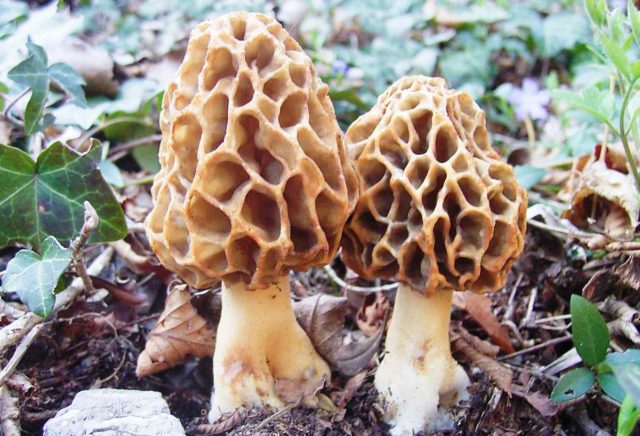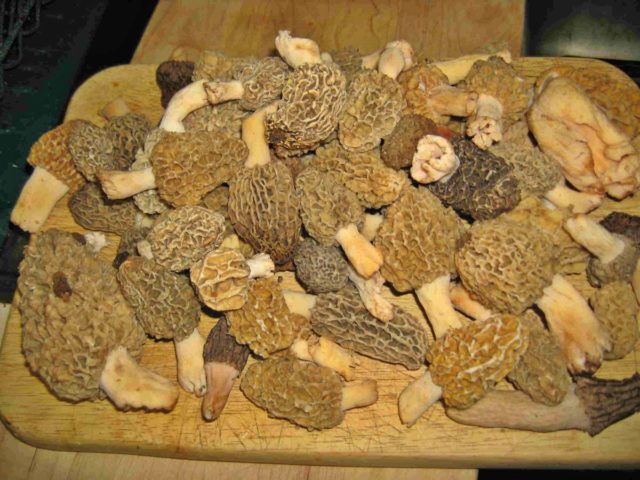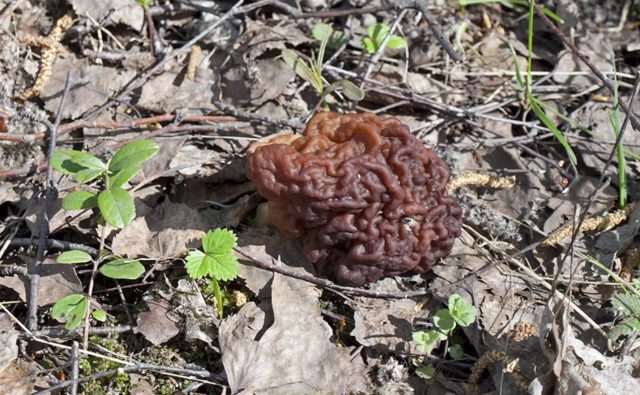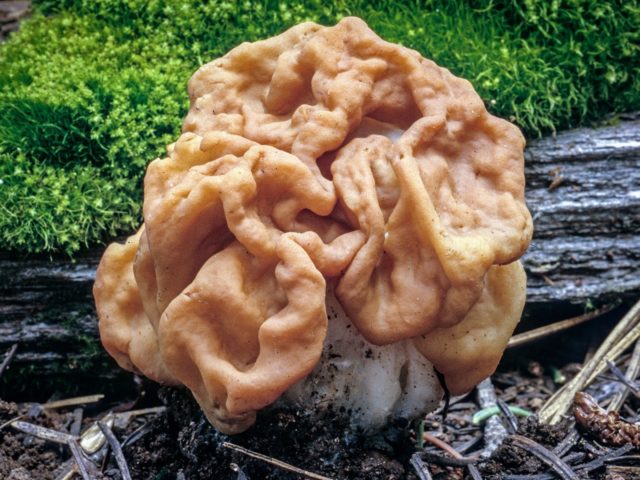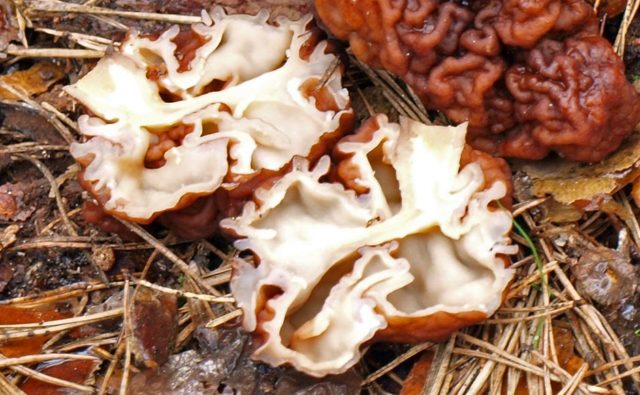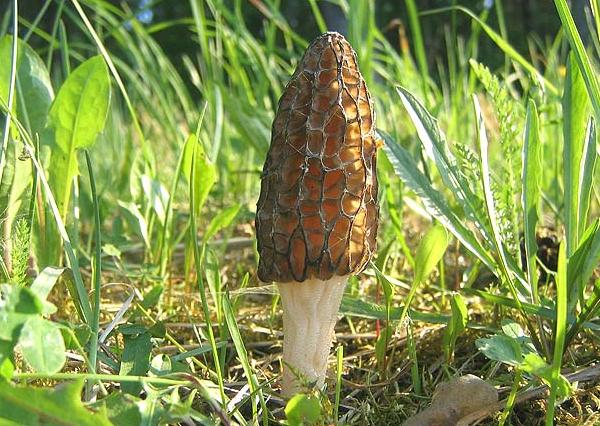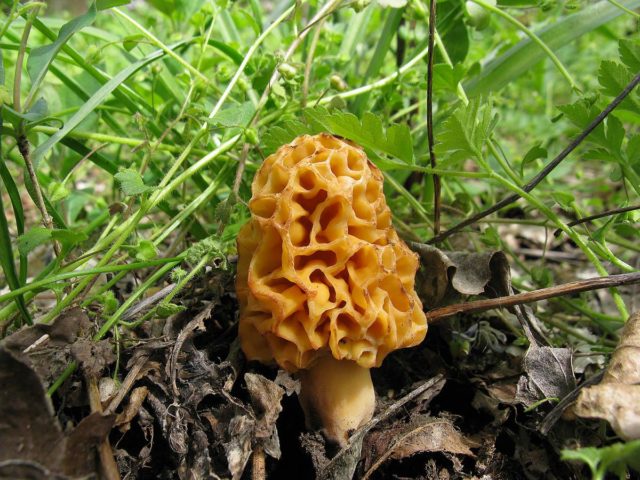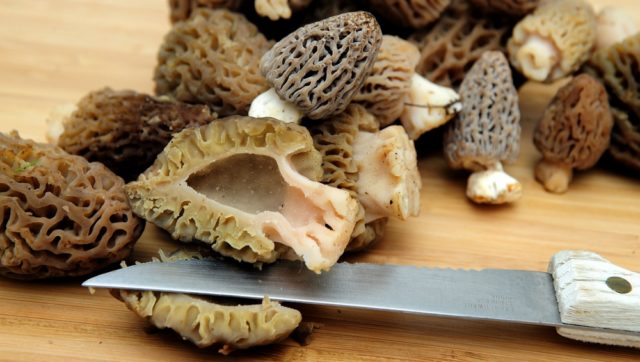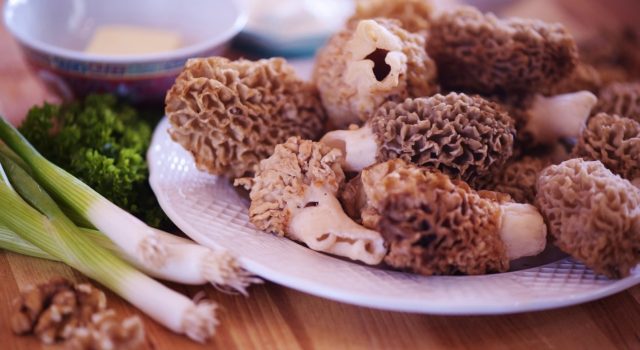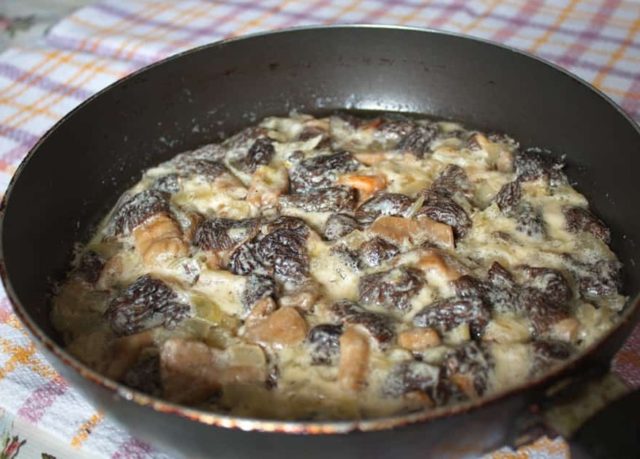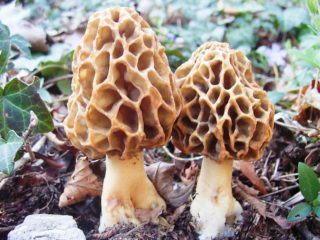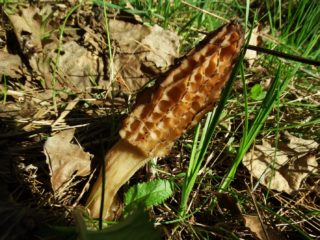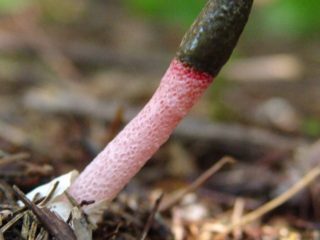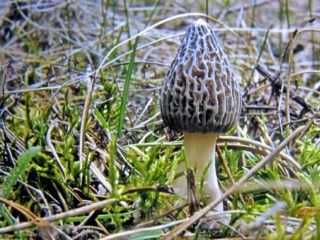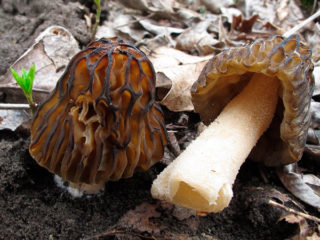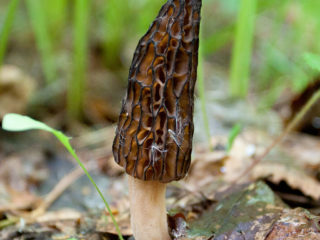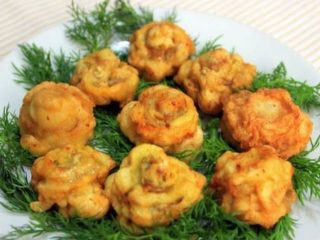Content
- 1 Where do edible morels grow
- 2 What edible morels look like
- 3 Is it possible to eat common morel (edible)
- 4 The taste of the mushroom is real morel (edible)
- 5 Benefits and harm to the body
- 6 How to distinguish edible morels from false doppelgangers
- 7 When to pick edible morel mushrooms
- 8 Rules for collecting edible morels
- 9 How to cook edible morel mushrooms
- 10 Conclusion
Morels are the first spring mushrooms that appear after the snow melts and the soil cover dries up. They belong to the Morechkov family and are represented by different species that do not differ significantly from each other in taste. Since ancient times in Russia, edible morel, or real morel, has been revered and used to prepare various dishes. Now in America and European countries, it is considered a delicacy that is in no way inferior to truffle in taste, therefore they are engaged in its cultivation on purpose, breeding mushroom plantations.
Where do edible morels grow
Edible morels can be found in coniferous and deciduous forests, on forest edges, in ravines, in clearings and clearings in the central and southern regions of Russia. They grow in fairly light, warm places in alder, birch, oak and mixed forests, as well as in areas after fires. They often actively spread even in city parks and forest belts. In the southern regions of the country, they prefer to grow in gardens and vegetable gardens. Various types of these mushrooms are often found in the forests and highlands of North America, Europe, Australia and Asia.
What edible morels look like
The real edible morel mushroom, as in the photo, has a spherical, rounded cap of brown or gray-brown color, which is distinguished by an uneven, cellular, pronounced winding surface.
Along the edges, the cap is connected with a notched, widening to the bottom leg of a white or yellowish color. Inside, the morel is edible completely hollow, so its weight is very small. Even having collected a whole basket, you may not even feel the mass of the forest "harvest". The pulp of the mushroom is brittle and thin, has a pleasant mushroom aroma. The height of one specimen is about 15 cm. The length of the egg-shaped cap is 5 cm, and its diameter is 4 - 5 cm. The cap and the leg are practically commensurate in length.
Is it possible to eat common morel (edible)
The common morel is a conditionally edible mushroom. It can only be eaten after a sufficiently long heat treatment. All varieties of morels - conical, tender, gourmet - are edible and widely consumed in food around the world. You can also find frozen, canned or dried members of the family on sale. First, they are boiled for 30 minutes. and only then baked, fried or stewed.
The taste of the mushroom is real morel (edible)
The first edible morels in spring, have excellent taste, despite the strange, somewhat original appearance. Their flesh is tender, distinguished by an incredibly pleasant mushroom taste and an unusual forest aroma of spring thawed patches and last year's grass.Thin, crispy white pulp with a pronounced aroma is appreciated by gourmets, and the correct preparation of these mushrooms allows you to create true culinary masterpieces.
Benefits and harm to the body
Edible morels benefit the human body by the fact that they have in their composition:
- substance FD4, a type of polysaccharide that strengthens the eye muscles and prevents lens clouding;
- active ingredients that enhance immunity;
- vitamins and minerals.
In folk medicine, a decoction of mushrooms is used to improve the functionality of the gastrointestinal tract, increase appetite. They are used to prepare medicines used in official medicine for the treatment of rheumatism and joint diseases. The ability of these mushrooms to purify the blood and the lymphatic system is known.
With proper preparation and compliance with the norms of heat treatment, mushrooms are not ways to harm the human body. The exception is individual intolerance to the product. It is necessary to collect them in ecologically clean areas. However, do not overuse edible morels.
How to distinguish edible morels from false doppelgangers
The most dangerous poisonous counterparts of edible representatives of the morel family are the lines:
- ordinary;
- giant.
However, if the giant species is large in size, then with an ordinary line, the situation is much more complicated. Both those and other mushrooms contain a poisonous substance - gyromitrin. However, in edible morels, its amount is minimal, while in the lines the rate of poison is so high that it is dangerous to human health and life. Related mushrooms are very similar in appearance, although upon closer examination there are still differences. The stitches have a very short, almost imperceptible stem, in contrast to edible specimens, the length of the cap and the legs of which are almost commensurate. Morels are characterized by a hollow interior that can be clearly seen when broken.
The lines have sinuous flesh inside.
The cap of edible mushrooms is completely covered with sinuous cells, at the line it is folded, in appearance similar to the kernel of a walnut. The lines grow in the same place - on clearings, soil cleared of sod, on the edges of mixed forests and fires.
How not to be mistaken when looking for edible morels, you can learn from the video:
When to pick edible morel mushrooms
Edible morels are harvested at the end of April and throughout May in deciduous floodplains, on forest edges and in ravines, in recently burnt places. The first mushrooms in the season are classified as conditionally edible. That is, for safety, certain rules should be followed when preparing them. Most often, they grow singly on forest edges and lawns in places with grass cover. In favorable growing conditions, representatives settle in small groups.
Rules for collecting edible morels
"Quiet spring hunting" after a long winter is the joy of every mushroom picker. In places warmed by the sun in ravines, under trees and shrubs in deciduous forests, there are edible common morels, as in the photo below. They prefer fertile, naturally fertilized soils. If one mushroom is found, then it is worth searching the entire clearing around. Often the edible representatives of morels hide in the grass, where it can be quite difficult to find them. It is easier to pick mushrooms in open areas after a fire. For cutting, a sharp knife is needed, with which the stem of the mushroom is cut at ground level.Only young, not overgrown specimens are suitable for food.
There are other varieties of edible mushrooms of the Morechkov family:
- Conical morel - grows in mixed forests in open meadows or along sandy paths in large groups. The conical species has a more elongated cone shape and a rather dark cap, and the flesh is very thin and crunchy.
- Morel cap... This species settles in illuminated places along the sides of roads, meadows, on burnt areas. The stem of the mushroom is very small, so it looks like one cap, which is where the name of the species comes from. The taste of such representatives is tender, but the aroma is weaker than that of other morels.
Important! In section, all varieties of edible morels are always hollow.
How to cook edible morel mushrooms
The secret of cooking spring mushrooms is that they are pre-boiled for half an hour. After that, the broth is drained and not used for food, and the mushrooms are thoroughly washed with cold water. Such preparation eliminates the risk of poisoning.
Next, the product is cooked:
- extinguishing;
- frying;
- making mushroom sauce.
You can also use them as a filling for pies, pies.
Morels stewed in sour cream or milk are a delicious dish that will be appreciated by real gourmets. For this:
- Boiled mushrooms are fried over maximum heat along with onions, salted, pepper.
- Dust lightly with flour.
- Add milk, sour cream or their mixture with a few tablespoons of butter.
- Allow to boil a little and remove from heat.
For blanks for the winter, a method such as drying is used, the period of which should take at least three months. For the preparation of culinary dishes in winter, dried mushrooms are soaked, boiled and then cooked in accordance with the recipe. A natural seasoning for any dish is made from mushroom powder, which is a very strong flavoring agent. To do this, the dried mushrooms are not soaked, but ground into a dry mixture. In any of the listed types of processing, they are a real delicacy.
Conclusion
Edible morel should not be ignored, because it is not only tasty, but also good for health. Subject to the rules of collection and preparation, it will not bring any harm to the body and, moreover, poisoning. Well, a spring trip to the forest after a long winter will also bring a lot of pleasant impressions.
